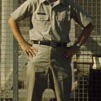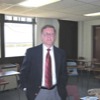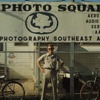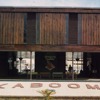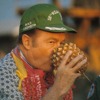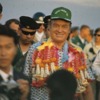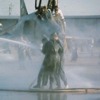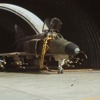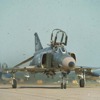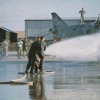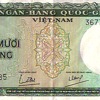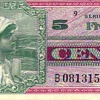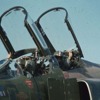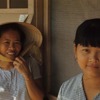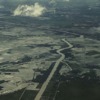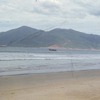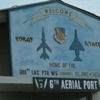

If you see this message, that means that you either do not have the latest version of Adobe Flashplayer installed (install it here) or you have blocked the ActiveX control for Internet Explorer. Please reload the page and allow the control.
 |
 |
|
| Mr. Drake: 1960's | Mr. Drake: 2006 | |
| Mr. Drake describes his responsibilties during the war. | Mr. Drake describes how he wants to remember the war. |
Mr. Drake was born in 1944 to a middle class family in Brooklyn, New York. He remained in Brooklyn until his graduation from high school in 1962. After graduating he majored in photography at the Rochester Institute of Technology. Mr. Drake was a self-described average student who postponed going to graduate school because at that juncture he didn't think he was ready for that level of academics.
He first learned about the Vietnam War through his love for photography in an issue of National Geographic Magazine. After reading that issue he became more concerned about the war, mainly due to the fact of its possible impact on his life. After his graduation from college, Mr. Drake chose to enlist in the armed services because he did not want to be drafted. After applying for an officer's position in various fields of the armed forces, he joined the Air Force as a Photographic Officer. He was unmarried at the time so he did not have any problems with the hectic schedule of travel experienced in the armed forces. However, the tables turned when he was called up to Langley Air Force Base and got married only a few months later. Mr. Drake eventually arrived in Vietnam in 1969 and would remain in Southeast Asia until 1970.
Mr. Drake will tell you that he was much better off than most others in Vietnam; however, the war still directly impacted his life in many ways. Although Mr. Drake was never in direct combat with the Vietnamese, his experiences and later reflections on the war have shaped an opinion and view which is essential to understanding the Vietnam era.
This is Seth Hoffman and Jamie Goldsmith. We are here at Wayland High School to interview Mr. Drake on April 26th, 2006.
Q: What year were you born?
Mr. Drake: 1944.
Q: Can you tell us about where you grew up?Mr. Drake: I grew up in Brooklyn, New York. I went to high school in Brooklyn. I then went to college at the Rochester Institute of Technology and I received an MBA from Suffolk University.
Q: Do you have any siblings?Mr. Drake: No. My parents gave up when they had me.
Q: What did your parents do for work?Mr. Drake: My mother was a housewife. She worked part-time at a bank to help pay for my college tuition. My father was a chemist.
Q: Did you father fight in World War II?Mr. Drake: No, he was never in the military.
Q: What year did you begin high school?Mr. Drake: 1958
Q: What was life at your school like?Mr. Drake: Crazy. It was pretty cliquish. There was the in-crowd, the middle-crowd, and the out-crowd. I was somewhere in the middle. I was interested in sports, was on the track team, and had also got into photography as a photographer for the high school newspaper. I wasn’t part of the social life too much.
Q: When you were a teenager, were you aware of world events?Mr. Drake: No, not really. I wasn’t that kind of teenager. I should have been, but I wasn’t.
Q: How old were you when you heard about the Cold War?Mr. Drake: About 10 or 12.
Q: What were your views on communism and communists?Mr. Drake: We were all kind of brainwashed into believing that they were the enemy and they were bad. There were no good communists and they were going to take over America and wipe us out, that’s what everyone felt like back then.
Q: Did you particularly fear them?Mr. Drake: No, not really.
Q: What do you recall about the general state of the country when you became an adult?Mr. Drake: It was a big transition, Jack Kennedy got killed, Robert Kennedy, and then Martin Luther King Jr. A lot of kids my age back then were into drugs and part of the "hippie" generation. A lot of people were also trying to avoid the military and the draft. It wasn’t real popular to be in the military back then.
Q: Do you remember anything about the Korean War?Mr. Drake: No, I just remember my father coming home one day really excited that it was over.
Q: What do you remember about President Eisenhower?Mr. Drake: Just that a lot of people wore buttons with the phrase, "I like Ike." That was a big deal and that things were going well when he was president. I was real young, like 6.
Q: Did you have any specific opinions of John F. Kennedy?Mr. Drake: I thought he was great. He was absolutely great.
Q: After high school, what did you plan to do?Mr. Drake: Well, I went to college. In high school I had been interested in photography. I was also interested in astronomy. Unfortunately, I knew math was not my strong suit, so that wasn’t going to be a career for me. I went to R.I.T. and majored in photography. I always wanted to be a photographer for National Geographic and then I found out that those people are like one in a million. You can’t just be good; you had to be an exceptional photographer and that was the end of that.
Q: When did you first hear about the conflict in Vietnam?Mr. Drake: In high school. I subscribed to National Geographic for the photography and there was an issue on Vietnam. It had what was going on, a fold-up map, and everything. I became more interested in what was going on, because I knew unless something extraordinary happened I was going to go into the military.
Q: What were your views of the resolution that took place after the Tonkin incident?Mr. Drake: I really wasn’t even aware of this. I was totally out of touch with all of that. I only became aware of it after I got out of the military. I wasn’t politically astute back in those days.
Q: In hindsight was the controversy regarding the USS Maddox a good excuse to go to war?
Mr. Drake: I didn’t think so. What I was told and believed was the "domino theory" of communism: if one country falls, then another one will fall and etc. That was my understanding of why we were going to war.
Q: Did you believe that?Mr. Drake: Back then, yes. Do I believe it now? No.
Q: How did you become involved in the service?Mr. Drake: When I was in college, as long as you were a full-time student you were eligible to avoid the draft. As soon as you graduated, even before you graduated, however you became eligible to join the draft. I said there was no way I’m getting drafted. I went to college, got a Bachelors of Science degree, but I did not want to be drafted. I applied for Officer School with the Navy, the Marines, and the Air Force. The Navy turned me down because of my eye-sight. The Marines I really didn’t want to go into, that was a backup and the Air Force accepted me. I went into the Air Force as an officer.
Q: What was that experience like?Mr. Drake: Interesting. I think anyone who has been in the military will tell you there are good experiences and bad experiences, good people and bad people, good times and bad times. Going through Officer Candidate School was not fun. That was absolutely bad news, but then I got stationed at Orlando, Florida and every weekend I went to the beach. I thought I was in heaven, so that was the good part. That was all before Vietnam obviously.
Q: What was basic training like?Mr. Drake: I didn’t have basic training but I had Officer Candidate training, it is slightly different. It was more academic; we learned about military history, military law, and Air Force history. Then you spend some time doing what they call physical training: push-ups, running, you name it. You had ten minutes for breakfast, ten minutes for lunch, and ten minutes for dinner. That was not fun. So, you learn when you went through the food-line you grab like three or four glasses of milk because you didn’t have enough time to go back and get more food. Those are the kind of things I remember.
Q: Did you find the physical training very tough?Mr. Drake: The toughest thing for me was that at the end we had the obstacle course which the Marines and Army use, but the Air Force usually doesn’t go through it. One officer class out of 30 would be picked to do it and they just happen to pick ours. I wasn’t too excited about that. It wasn’t too hard but it was still doing things we normally didn’t do, like swinging over rivers. I found the obstacle course the hardest thing. I got through it, but it wasn’t fun.
Q: You had mentioned the Navy didn’t let you in because of your eye-sight. Did your poor eye-sight further hamper your experience in any way?Mr. Drake: It became an obstacle going to Vietnam. When we went to Vietnam we had to get gas masks. Back then we didn’t have contact lenses, so if you wore glasses you couldn’t wear them under the gas mask. We actually got prescription windows in the gas mask and that became a big deal. I got like three months notice that I was going to Vietnam and usually it takes about 6 months to get this gas mask. You can’t go without it which didn’t bother me because I wasn’t really excited about going anyway, but I had to go through all sorts of hoops to get that. Other than that, wearing glasses was not a problem.
Q: What does the career of a photographic officer entail?Mr. Drake: When I went to Orlando I was what was called a Motion-Picture Production Officer. We had a crew: a sergeant and a four to five group of people and you would be sent on a project. You would go because they would launch a new aircraft or a new VIP was coming and things like that. I was on T.D.Y. (temporary duty). I spent time in the Canal Zone, different parts of the US, the Azores (off the coast of Spain), about a week in Bermuda which wasn’t too tough to take. However, you go in a moment’s notice, like on a Monday morning they tell you Tuesday morning you would leave for three weeks. You just have to pack up and go. It was fun going because I was single, but when I got married that lost a lot of the fun.
Q: What was your experience like as a photographic officer in Thailand and Vietnam during 1969-1970?Mr. Drake: In Vietnam I was there for about five months, more or less, and I was responsible for the motion-picture processing facility, the still-photographers, both shooting and processing. Each one of those facilities had a sergeant and under that sergeant would be about ten to twenty enlisted people and I would monitor them and make sure they got supplies, resolved any issues, problems and things like that.
Q: When you went to Vietnam and Thailand did you leave any family or loved-ones behind?Mr. Drake: Yes, I did and that was the hardest part. Right before going I had orders for Langley Air Force Base, Virginia. My wife and I got married in February and we went on our honeymoon. I had these orders since about December and I said anyone that gets married and goes to Vietnam has got to be crazy, like today, anyone that gets married and knows they are going to the Gulf is crazy. So, I had [orders] to go out to Langley, the day we came back. And when I went back to work I had orders for Vietnam [and the Langley orders were canceled]. My wife was all upset, I was all upset. There was a lot of crying, drinking, yelling, and cursing. That was probably the hardest part.
Q: What was your experience like going to Vietnam and Thailand?Mr. Drake: I left out of Washington, D.C. went to Travis Air Force Base in California and the military did a great job of organizing all the trips. I was in Travis Air Force Base eight hours waiting for the flight out to Vietnam. Everything was commercial you didn’t fly military. I wasn’t real happy to begin with, waiting in Travis for eight hours with nothing to do, I didn’t know anyone, had never been there, so I spent some time at the bar.
Q: So you found comfort in drinking?Mr. Drake: Kind of, yes. Not so much in Vietnam but at least at Travis my wife would say I shouldn’t have said that but it’s the truth.
Q: How was the transition to this new and different environment?
Mr. Drake: It was tough. The people were good, air conditioning was extremely limited. We worked in trailers, we didn’t have an office, no building, and everything was in a trailer. The trailers were air-conditioned, the movie theater was air-conditioned, the exchange was air-conditioned, and that was it. I was a second lieutenant and I thought that was a big deal back then, in hindsight it wasn’t. The BOQ [Bachelor Officer Quarters], which is where I stayed, was probably the size of a closet. It had this huge fan and a screen with slots in it. Also the walls didn’t come all the way down, so bugs would crawl in during the night. I had it good compared to other people and I just hated it. So, the BOQ was one thing, it was just horrible sleeping. It was hot and humid. I had never been in such a place that was so hot and humid. Florida, in its worst case is nothing compared to Vietnam, as far as heat and humidity go.
Q: What was it like when you first arrived in Vietnam?Mr. Drake: Confusing, I didn’t know what was going on, where to go, what was happening. The flight over from California was almost 24 hours with stops. So I got there, I’m sweating, I don’t smell good. The most exciting thing for me at that point was getting into a shower and that’s all I cared about. Give me a shower and clean clothes, that’s all I wanted.
Q: Was it overwhelming being in a new environment?
Mr. Drake: No, not really. I had flown out of Florida and we flew to different base exchanges all the time, so this was just one more, except much longer. Usually, we just go two or three weeks but I was in the Canal Zone on two different occasions once for four months and once for two months. For this though, you knew you were going for a year, which is still not bad considering there are people in the Gulf today who don’t know when they are coming back. In the Korean War they didn’t know when they were coming back or in World War 2. At least we knew when we were coming back.
Q: Broadly speaking, what do you think you were there for?Mr. Drake: 365 days. That’s the way I looked at it. My understanding at the time was to prevent the communists and North Vietnam from taking over South Vietnam. That’s the way I understood it.
Q: Why did you go to Vietnam and Thailand, despite the fears you may have had?Mr. Drake: I knew I was going to get drafted and I just said there was no way I was going to get drafted, I will do everything in my power not to.
Q: Did you keep in touch with your wife?Mr. Drake: Yes, every day. We wrote letters. Every day I looked for a letter and if I didn’t get one I was not happy. If I didn’t get a letter that day, the next day I got two letters. You know we just wrote about stupid stuff, nothing sentimental, they were not "love letters" per say, some of them were but it was more what we did day to day. It was more to try to keep in touch with the real world because that was not the real world.
Q: When you were in Vietnam, what were your primary responsibilities?Mr. Drake: Everyday was different. It was all supervision and administrative. It was like being a manager or supervisor. I was in charge of budgets, personnel, dispute resolution, and supplies. The military has certain numbers for certain supplies and that’s all you can get. We had some specific requirements in photography and that was frustrating because we couldn’t get them. For example, the motion-picture lab had to get indelible pens to write on the film to code it so you know what was from what. We couldn’t get those from supply. They didn’t have indelible pens in the 400,000 page catalogue ad, so all of us, including myself had our wives and girlfriends ship us indelible pens. It seems crazy but it was the only way we could get things done.
Q: Did you witness any combat in Vietnam?Mr. Drake: No, fortunately. That’s why I became an officer. There were rocket attacks in Tan Son Nhut, that’s where I was located because the officer quarters are right next to the helicopter pad and their primary target was to take out the helicopters. So about once a week the siren would go off. When I first got there we had a bunker outside, you would run to the bunker, and after a while I learned that was the worst thing you can do. More people got hurt running for the bunker. They just said, "Stay in your bed, don‘t even get up." and that’s what I did.
Q: Do you have any stories of communicating with the Vietnamese natives?Mr. Drake: I really didn’t. I went into Saigon a couple of times, but it was more sight-seeing. We had both men and women, Vietnamese, clean the office area and they didn’t speak good English and we didn’t speak Vietnamese, the whole thing was you were either number one or number ten. Number one means everything is good, you’re a good person, or what you are talking about is good. Number ten means the worst. So everything was either number one or number ten, that’s all I remember about that.
Q: What was the hardest part of your job?Mr. Drake: Trying to stay sane. People would argue I didn’t do a good job. Coping, coping with the frustration of things not going well, coping with the fact I was a newlywed, coping with the fact I didn’t want to be there, coping with the fact that no one else wanted to be there. Morale was just horrible. As an officer you were responsible for morale, but your morale is as bad as anyone else’s. That was probably the hardest thing.
Q: Did you ever feel you were in direct danger when doing your job?Mr. Drake: Just when the base was attacked, and I flew to other bases while in Vietnam and a couple of times the aircraft would come under fire. The only thing I can remember was that we were told to sit on our flack-jackets; you don’t usually wear those because mostly people will get shot in the rear, so to speak, when in air combat. I just remember sitting on a flack-jacket every time I flew.
Q: What were your opinions of the enemy?Mr. Drake: Again, I didn’t have any strong opinions on them because I wasn’t in combat or out in the field, I never saw the enemy. I was just there to support what we needed to do to support the troops in the field who were fighting.
Q: What types of things were photographed?Mr. Drake: We did everything from VIP visits to documentaries. Also the fighter aircrafts back then were F4’s and F105’s, they had high-speed motion-picture camera film in them. If you have ever seen movies from the Vietnam War, you see slow speed motion-picture photography and a bomb exploding; those were all taken from fighter aircrafts and processed by our lab. We would have people go out and download these to the aircraft and then process that film and that would go over to intelligence to review.
Q: Were there other labs that did the same things that you did?Mr. Drake: Yes, we had different attachments. Tonsinute was headquarters for our unit. We had other places throughout Vietnam that did the same thing. So, there were places at Ben wad, Dinein, and Cameron Bay. They were smaller facilities with less people.
Q: What did you do in your spare time in Vietnam?Mr. Drake: I went to the movies a lot. I remember seeing The Planet of the Apes, the original one. I saw that for the first time in Vietnam and I thought it was the greatest movie. Remember, the theater was air-conditioned. I had my wife send me books to read, you could get books in Vietnam but they weren’t great. She sent me paperbacks to read. We had stupid dice games and card games that we would play in the Officer’s club, out of boredom because it was air-conditioned. The last thing you wanted to do was go back to where you had to sleep because it was so hot and humid. So, we stayed in the Officer’s club for as long as we could. We had no television, no radio, no cell phones, no internet, no e-mail; I mean we would get Time Magazine like a week late. They had an Air Force Publication, which was like a week late. Everything had to be flown over; it’s not like today with electronics. So, basically you tried to entertain yourself. I tried to read and stay at the Officer’s Club and play these stupid card games that I would always lose.
Q: What was different between Thailand and Vietnam?Mr. Drake: Food. Thailand was like heaven, even the Officer’s club there was a lot better. They had fresh fruit; in Vietnam there was no fresh fruit. Thailand they actually had table-cloths and silverware. Again, this was Vietnam, this was headquarters, this was Tonsinute and we would have like a special every night and we would have plastic silverware, like eating at a KFC. The Officer’s club in Thailand had a swimming pool and I used to go swimming a lot, you couldn’t do that in Vietnam. Officer’s club and the Bachelor’s quarters were all air-conditioned. You can imagine how I felt about that after just being in Vietnam. So, Thailand was more civilization and Vietnam was more combat-related.
Q: How long were you in Vietnam?Mr. Drake: Roughly about five months and about seven months in Thailand.
Q: When you eventually left Asia what was that like?Mr. Drake: Oh, it was great. I got a flight out of Thailand and back to Tan Son Nhut and then a flight to the United States. The flights going over and coming back were mixed, you know you had Marines, Air Force, Navy, Army, enlisted, everyone. The moment those wheels left the land of Vietnam the whole plane cheered. We all got excited; everyone was screaming and yelling. The people just couldn’t wait to get out of that place.
Q: How did you feel when you saw your wife again?Mr. Drake: Oh, it was great. We spent almost two weeks in Hawaii on R and R; that was good. The only thing that aggravated me, I went back to D.C, I get off the plane and I’m all excited and there are other people there, wives, fathers, mothers and she’s not there. Where is she? You know it’s been six months since Hawaii. Well, she left really early, to get there early, but the car broke down. There are no cell-phones; I don’t know what is going on. So, I wait and I’m patient, after about an hour she’s still not there. So, I called her parents and they don’t know what happened. Finally, she calls her parents and tells them she’s at a gas-station and then I call back and they told me. When she finally got there I was almost angry, but I was so glad to see her.
Q: When you arrived back at home did your views towards the war change at all?Mr. Drake: It’s hard for me to remember to be honest. I guess I would have to say not strongly because I really don’t remember.
Q: Did you notice any racial differences between the troops in Vietnam?Mr. Drake: I didn’t but it was there, more so in combat. Black people were definitely second-class citizens in Vietnam. Out in combat Black people were treated differently from everything that I have heard. They were given the worst jobs, the hardest jobs, and the most dangerous jobs. Most of the draftees were Black and I didn’t know that at the time, but statistically that was the case. White males became officers, went to Canada to avoid the draft, or went to graduate school which I should have done. As long as you were in college you couldn’t get drafted. There were people who had two or three master’s degrees, just to stay out of the draft. I did okay in college, but I definitely wasn’t graduate material. Until I got back, got a job, settled down, and then went to graduate school.
Q: How were you treated when you arrived back?Mr. Drake: Yeah, unlike other people, I didn’t have any problems. So, it didn’t bother me that much, I mean, in hindsight I was ignored but I wasn’t treated poorly. Other veterans were abused physically or verbally. It was unlike today’s war, where a lot of people are against the war, but supporters of the armed forces. In Vietnam they were against the war and against the people who fought in Vietnam. It was a different situation.
Q: How did you perceive anti-war protesters and how did they impact you?Mr. Drake: I really wasn’t bothered by them. I knew the anti-war movement was going on and I was well-aware of Kent State. I was just pretty neutral about the whole thing, until the end. I just thought we should get out because it was getting worse and worse. I don’t know the exact total but something like 58,000 people lost their lives in Vietnam. I mean, for what? Nothing. The North Vietnamese came in and took over the country. So, what was it all really for?
Q: Do you have any views of the Tet Offensive?Mr. Drake: No, not really, that was the year before I went there. The only thing I remember was that the big deal about Vietnam was to get a tape recorder. They were actually on the base of Tan Son Nhut and people left their tape recorders going there. You could hear people fighting, yelling, and the hand-to-hand combat on the tape recorder, that’s all I remember.
Q: When did you learn about the My Lai massacre?
Mr. Drake: When I came back. Unfortunately, that was typically what happened during the combat over there, from what I understand. The problem of Vietnam was that you didn’t know who the enemy was, like the Iraq situation. Vietnam was even worse though, you go into downtown Saigon and a little kid would come up with a hand-grenade and throw it at you. The Vietcong were South Vietnamese by day but the enemy by night. You never knew, so these guys would go into the village and a grandmother could pick up a gun and start shooting. They got so used to that they just went on the offensive first. My Lai was wrong and they shouldn’t have done it. I understand, however, how it could happen; they were just scared to death. You never knew who was going to shoot at you, sex and age didn’t matter.
Q: Did the massacre have any impact on your views?
Mr. Drake: No, not really. I don’t think so.
Q: What are your opinions of Kent State?Mr. Drake: It was sad and it should never have happened. Emotions were very high, along with everything else that was happening in that time frame, the assassinations, and the Democratic National Convention. That was a big deal; people were killed and beat up there. It was just waiting to explode. I think the National Guard at Kent State was just on edge as the students taunted them. It just blew up, it was waiting to happen.
Q: Do you remember how the media displayed and depicted these events?Mr. Drake: I don’t. I remember a book that came out on it, which I read, but I really don’t remember much on the media of that time. I remember the photograph of that woman leaning over the guy who got shot and that won the Pulitzer Prize that year, for the best journalistic photograph of the year.
Q: What role do you think Vietnam played in the 2004 presidential elections?Mr. Drake: Well, I agree with everyone else, John McCain was a combat veteran and John Kerry is a combat veteran. McCain told Kerry not to even bring it up and I agree, never bring it up. Vietnam is still sore with people. There is so much with Bush doing whatever he did to avoid going over there and Kerry being over there but I don’t know how long, four months maybe. People still had such strong emotions about it. I don’t know if Kerry would have won had he not brought it up, but his chances would have been much greater. Veterans hate Kerry for what he did. I hate Kerry for what he did. When he came back from Vietnam and went before Congress and said it was a mistake and we should get out. Meanwhile, people are dying over there and he said people didn’t know what they were doing and the generals didn’t know what they were doing. This was during the war, not after. I got e-mails from all over from veterans saying "Vote against Kerry." People felt he was such a traitor when he came back and went before Congress and bad mouthed the people serving over there. He said the people serving in Vietnam didn’t know what they were doing, which was a broad and general statement but implied everyone. He said that we were stupid and so on, so I think there was a Vietnam backlash when he ran for presidency and that really hurt him. Sorry, I just feel very strongly about that; not that I’m emotional or anything.
Q: Are you generally conservative or liberal?Mr. Drake: I’m conservative, usually I vote Republican but I also consider who would be the best person. Actually, I was looking forward to Kerry running but when he started with the Vietnam stuff that just turned me off.
Q: As you’ve reflected on the war over the years; how do you view it differently now from when you were a young man?Mr. Drake: Now I think it was a mistake and I’m concerned Iraq is a repeat, like a lot of people. There is no enemy per se, Iraq is even worse, we have open borders. It was the same case with South and North Vietnam; we couldn’t close that border, like how we can’t close the border in Iraq. In my opinion, I will be shocked if Iraq is a fully independent nation without our support. I hope I’m wrong, but I will be shocked. It’s just too similar.
Q: Did you support the war in Iraq?Mr. Drake: No. I thought it was a mistake. They never attacked us and still we would be way ahead of the War on Terror had we committed our resources a hundred percent, like for finding Al Qaeda, instead of spreading our resources so thin by going into Iraq.
Q: What are the lessons the nation learned or should have learned from this conflict?Mr. Drake: In my opinion, if you’re going to go to war then you commit one hundred percent of your resources or you don’t go to war. We didn’t do that in Vietnam and we are not doing it in Iraq. Iraq has been war on a budget and that’s one problem. In Vietnam, we could have gone into North Korea, even without nuclear bombs and just invaded them. We should have bombed them day and night and we didn’t. We were in a defensive position and not an offensive position and from what I know that is not how you want a war. You go in to win; you don’t go in to keep things as they are. We did that in Vietnam and we are doing that in Iraq.
Q: Is Vietnam something that you want to forget?Mr. Drake: No, it’s part of my background and part of my history. It’s funny I was with one of my friends and we were talking about places we lived over the years and I mentioned Vietnam. He said to me, "No, you didn’t live in Vietnam, you existed in Vietnam" and he was right it was an existence, it wasn’t living. Again, I didn’t have it that bad because I wasn’t in combat. I would see the Army and Marine guys come in from the field and they didn’t change clothes in a week. You could smell their odor ten feet away. They were fatigued and they looked like a mess. I had nothing to complain about compared to those guys.
